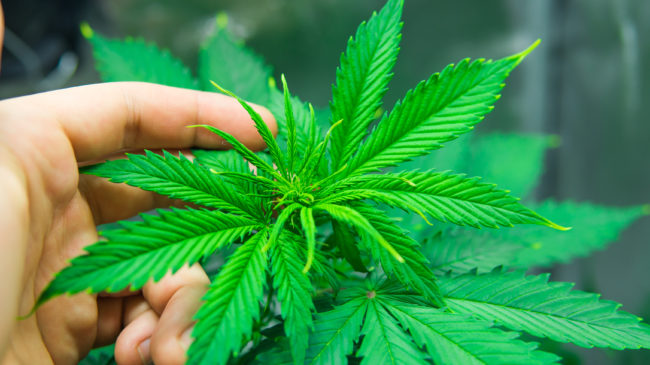Arizona Proposition 207: Marijuana Legalization Initiative
Summary:
Arizona’s Proposition 207 would legalize the possession and use of recreational cannabis for adults 21 or older, allow adults to grow no more than six cannabis plants for personal use at their residence in a locked and enclosed area beyond public view and allow them to purchase cannabis from state-licensed and regulated suppliers. Proposition 207 would require the creation of licenses and regulations for the cultivation, production and sale of cannabis products. It would also place a 16 percent tax on marijuana sales, the revenue from which would go to community college districts; municipal police, sheriff, and fire departments; fire districts; the state’s Highway User Revenue Fund, and a new Justice Reinvestment Fund. Local governments would be allowed to ban marijuana facilities and testing centers and have some power over licensing, zoning and regulation of cannabis businesses. Finally, Proposition 207 allows anyone convicted of certain marijuana-related crimes to petition for the expungement of their criminal record.
Fiscal Impact
No independent fiscal analysis is available as of this writing. The initiative’s supporters, Smart and Safe Arizona, claim Prop. 207 would generate “$3 Billion in new revenue during the first 10 years alone.” However, most other states have fallen significantly short of their official revenue projections for cannabis tax revenue.
Proponents Arguments For
Supporters say Proposition 207 would produce many benefits including tax revenue earmarked for “community colleges, public safety, public health programs, roads and highways” and other uses. The initiative protects children through child-resistant packaging mandates as well as advertising restrictions. It allows for Department of Health regulation, funding of various law enforcement and public safety programs, and also for private businesses to enforce drug-free workplaces. Supporters say Proposition 207 would mean more efficient use of law enforcement resources and greater social equity benefits, as unjust criminal records for behavior no longer illegal are expunged.
Opponents Arguments Against
Opponents say Proposition 207 would mean more kids using marijuana, more drivers under the influence putting everyone at risk, and big trouble for employers trying to keep drug-free workplaces. They claim legalizing marijuana in other states has been plagued by implementation problems, such as lawsuits and manipulation by big companies. Proposition 207 has problematic provisions that prevent the state legislature from changing the law in the future, even if circumstances change. It also does not dedicate any of the new revenue to Arizona’s struggling school system.
Discussion
Reason Foundation has documented, in a series of policy briefs, the true impacts of legalizing recreational adult use of marijuana on such things as juvenile use, road safety, health and emergency services, and workplace safety. What it does is start to replace the very dangerous black market for marijuana products with a legal market where potential harms or problems can be dealt with through more peaceful means than the war on drugs. The bottom line is that legalization has worked well in the states where it has passed and the fears expressed by the opponents of Prop. 207 are proved wrong by the data.
A May 2020 YouGov poll of residents of nine states that have legalized marijuana asked if they think it is a success or failure. In five of the states, two-thirds or more of voters think it is a success, and only one state (Maine) less than a majority (47 percent) think it is a success. In every state, 20 percent or less think legalization is a failure.
Adult recreational use of marijuana is currently legal in 11 states, and more and more people seem to be persuaded it is a good idea. National polling shows 67 percent of American adults say marijuana should be legal (including 55 percent of Republicans and Republican leaners), and adults who oppose legalization has fallen from 52 percent in 2010 to 32 percent today. In Arizona, marijuana legalization was supported by 49 percent of registered voters as of September.
Even so, the proposition is a mixed bag, as it would legalize marijuana but does not follow the best practices and lessons learned to date. Similar to most other state initiatives to decriminalize adult-use cannabis, Proposition 207 bases its licensing and regulatory programs on those currently enforced for medical cannabis. The initiative uses the same agency, the Arizona Department of Health and Human Services, to adopt rules to regulate adult-use cannabis, including licensing retail stores, cultivation facilities, and production facilities. It also requires the department to accept its first applications (between January 19, 2021, and March 9, 2021) exclusively from nonprofit medical marijuana dispensaries and entities operating within counties with fewer than two nonprofit dispensaries.
The initiative would also provide local governments with the power to ban marijuana facilities and testing centers and give local control over elements of regulation, zoning, and licensing. Combined with the priority entry to existing medical licensees, these controls would impose considerable barriers to future new entrants into the market, with the likely effect of consolidating the combined legal market power of current medical licensees.
The ballot initiative would also place a 16 percent tax on marijuana sales. The revenue from the tax would be used to implement and enforce regulations, with the remaining revenue specifically allocated as follows: 33 percent for community college districts; 31.4 percent for municipal police and fire departments and fire districts; 25.4 percent for the state’s highway user revenue fund; 10 percent for the justice reinvestment fund; and 0.2 percent for the Arizona attorney general’s enforcement.
Proposition 207 also allows anyone convicted of certain marijuana-related crimes to petition for the expungement of the criminal record starting on July 12, 2021. People who would not have been convicted under today’s marijuana laws shouldn’t be burdened with those convictions. Expunging them would help previously convicted workers who are seeking employment and allow for a more productive state economy.
Finally, this initiative strictly limits future legislative amendments of its provisions, meaning any substantive changes would need to be approved via subsequent voter initiative. This is because in some states, notably Utah, legislatures have overridden marijuana measures, passed by the people, seemingly under heavy influence from narrow interests. This provision exists so that only voters can change this law once it is in place.
Voters’ Guide to Other Marijuana Legalization and Drug Policy 2020 Ballot Initiatives
Voters’ Guides to 2020 Ballot Initiatives on Other Policy Topics


